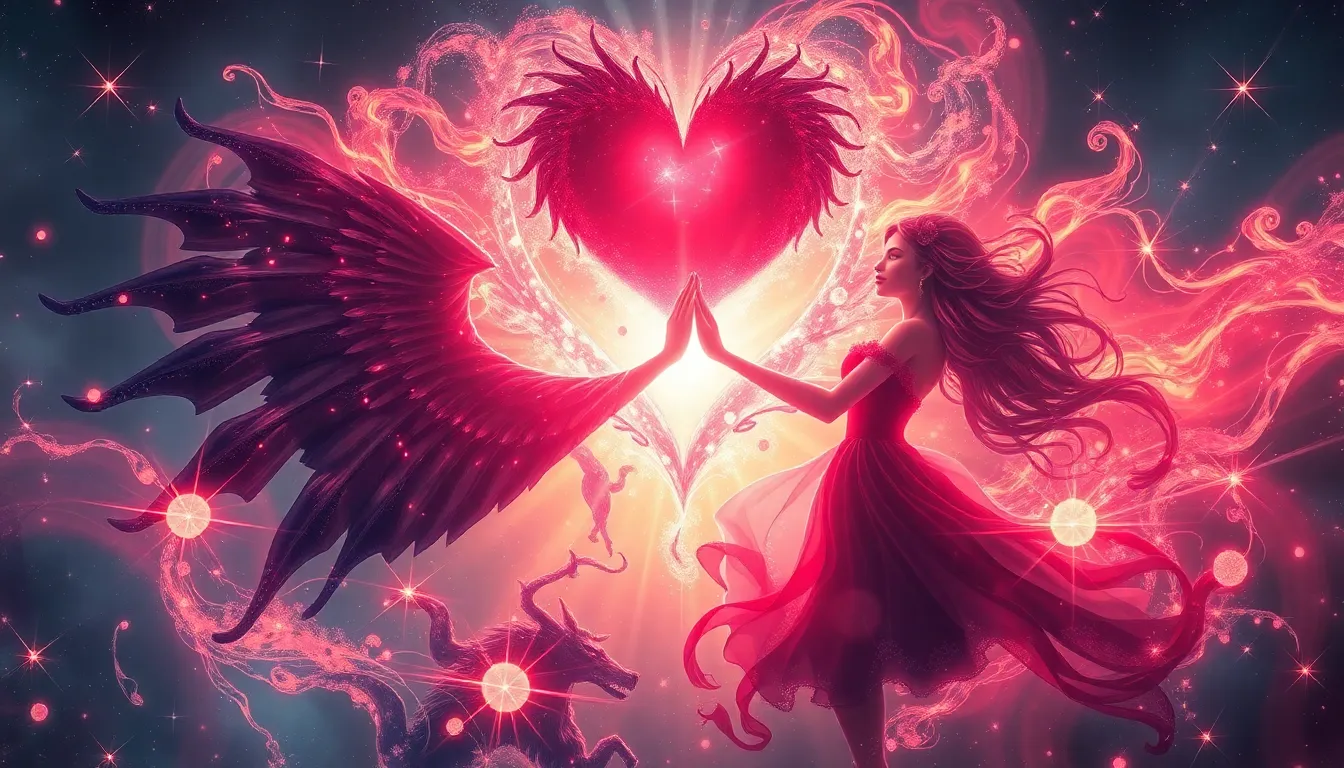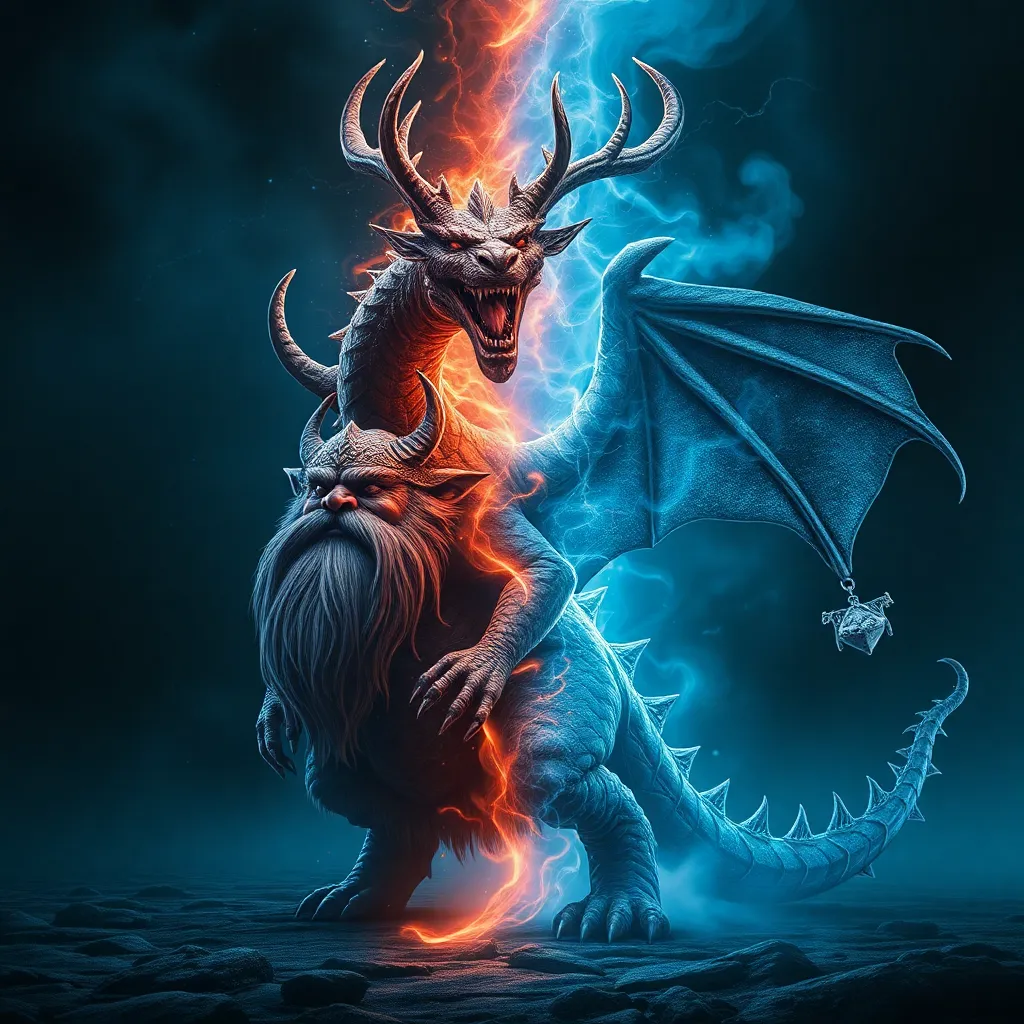The Heart’s Desire: Exploring Passion in Mythical Stories
Introduction to Mythical Stories and Passion
Mythical stories are narratives that are deeply rooted in the cultural fabric of societies, often explaining natural phenomena, human behavior, and moral lessons through the lens of the extraordinary. These tales feature gods, goddesses, heroes, and fantastical creatures, making them both captivating and enlightening. At the core of many mythical stories is the theme of passion, which serves as a powerful force that shapes the narratives and character arcs.
Passion in mythology is not merely an emotional state; it is a driving force that propels characters towards their destinies, influencing their decisions, relationships, and ultimately, their fates. Through exploring passion, we can better understand the motivations behind characters’ actions and the consequences that follow.
The Nature of Desire in Mythology
Desire is a prevalent theme in various mythologies around the world. It often manifests as a longing for love, power, knowledge, or fulfillment. The interplay of desire and action creates dynamic narratives that engage audiences across generations.
The exploration of desire in mythology reveals how it drives characters’ actions and decisions. Characters are often depicted as being consumed by their desires, leading to both heroic and tragic outcomes. The pursuit of desire can lead to personal growth, but it can also result in downfall, reflecting the dual nature of human aspirations.
Iconic Myths and Their Representations of Passion
Two iconic myths that capture the essence of passion are the stories of Orpheus and Eurydice and Pygmalion and Galatea.
Case study: The myth of Orpheus and Eurydice
In this poignant tale, Orpheus, a gifted musician, is deeply in love with Eurydice. When she dies, Orpheus’ overwhelming desire to bring her back to life drives him to the Underworld. His music enchants Hades, and he is granted a chance to reclaim Eurydice under one condition: he must not look back at her until they reach the surface. The tragic moment comes when his longing and doubt compel him to glance back, resulting in Eurydice’s eternal loss. This myth illustrates how passion can both motivate and destroy, showcasing the transformative power of love intertwined with devastating consequence.
Case study: The tale of Pygmalion and Galatea
Pygmalion, a sculptor, falls in love with a statue he has carved, named Galatea. His passion leads him to pray for her to be brought to life, and the goddess Aphrodite answers his plea. Galatea awakens, and their love blossoms. This story highlights the theme of passion as a catalyst for transformation, demonstrating how love can breathe life into the inanimate and fulfill deep-seated desires.
Both myths underscore the transformative power of passion, illustrating how it can inspire profound change while also revealing the vulnerabilities of human emotion.
The Duality of Love and Desire in Mythical Narratives
The exploration of love versus lust in mythical narratives provides insight into the complexity of human emotions. While love is often portrayed as pure and selfless, desire can manifest in more primal forms. Different cultures have unique interpretations of these themes.
- Greek Mythology: The tales of Aphrodite often blur the lines between love and lust, illustrating the chaotic nature of desire.
- Norse Mythology: The story of Freyja highlights the fierce and sometimes destructive power of love and desire.
- Hindu Mythology: The relationship between Radha and Krishna exemplifies divine love, transcending mere physical desire.
The Consequences of Unfulfilled Desire
Many mythical narratives explore the tragic outcomes of unattainable passion. The story of Persephone, who is abducted by Hades, serves as a prime example. Her longing for freedom and the cyclical nature of her return to the Underworld evokes powerful themes of loss and longing.
These consequences reflect human experiences, illustrating the pain of desire that remains unfulfilled. Myths often serve as cautionary tales, warning against the dangers of unchecked desire and the inevitable sorrow that can accompany it.
Divine Interventions and the Nature of Desire
In many mythical stories, gods and goddesses play crucial roles in influencing mortal passions. Deities like Aphrodite and Eros actively intervene in the lives of mortals, guiding or manipulating their desires.
The impact of divine love on human fate is profound. For instance, the love bestowed by the gods can lead to both blessings and curses, demonstrating how passion is interwoven with the divine will. Such interventions highlight the delicate balance between mortal desire and the whims of the gods.
Passion as a Catalyst for Change
Passion often serves as a catalyst for heroism and transformation in mythical tales. Characters driven by desire embark on epic journeys, facing trials that test their resolve and redefine their identities.
These transformative journeys prompted by desire can lead to:
- Personal growth and self-discovery
- Heroic acts of bravery and sacrifice
- Restoration of order and balance in the world
Cultural Reflections of Passion in Mythology
Different cultures interpret passion uniquely in their myths, reflecting societal values and norms. For example, the portrayal of passionate love varies widely from the romantic ideals of Western myths to the more complex and often tragic love stories found in Eastern traditions.
These cultural reflections highlight how passion shapes human experiences and societal narratives, revealing what each culture values in love, desire, and relationships.
Modern Adaptations of Mythical Passions
The influence of ancient myths on contemporary literature and media is undeniable. Many modern retellings emphasize passion, drawing parallels between ancient and modern human experiences.
Case studies include:
- Orpheus and Eurydice: Adaptations in opera and film continue to explore themes of love and loss.
- Pygmalion: Variations in literature and theater, such as George Bernard Shaw’s play, reflect the enduring nature of desire and transformation.
Conclusion: The Enduring Legacy of Passion in Myth
In summary, the exploration of passion in mythical stories offers rich insights into the human condition. These narratives reveal the complexities of desire, the consequences of unfulfilled passion, and the transformative power of love.
The themes of passion and desire remain relevant today, helping us to understand our own yearnings and the profound impact they have on our lives. As we continue to retell these ancient stories, we keep the legacy of passion alive, connecting us to our shared humanity across time and culture.




